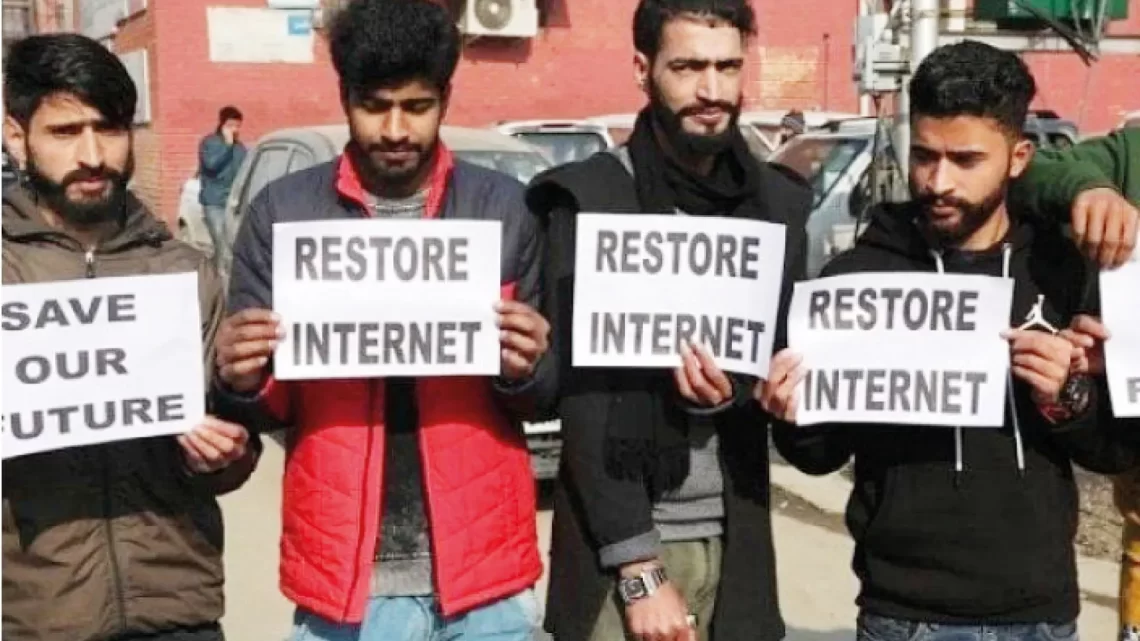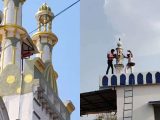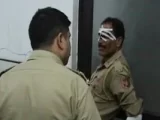
Outrage Erupts Over Modi’s Justification for Internet Shutdown in IIOJK
May 30, 2024Indian Prime Minister Narendra Modi’s defense of the prolonged internet shutdown in Indian Illegally Occupied Jammu and Kashmir as a “governance strategy” has ignited widespread condemnation from critics, who argue that it was a blatant violation of human rights and an attempt to quash dissent.
In a recent interview in New Delhi, Modi justified the year-long internet blackout, claiming it was essential to maintain peace and stability in the region. This justification, however, has been met with fierce criticism. Detractors argue that the move was an excessive and heavy-handed approach that severely undermined the rights and freedoms of the Kashmiri people.
The shutdown, one of the longest in the world, had devastating effects on the people of Jammu and Kashmir. It severely restricted access to essential services such as healthcare and education, and crippled communication. Critics argue that the true motive behind the shutdown was to suppress dissent and silence the voices of Kashmiris, who have long been advocating for their right to self-determination. This has raised serious questions about the Indian government’s policies and its sham commitment to democracy. In the digital age, access to the internet is considered a fundamental right, and imposing such a prolonged blackout is seen as a disproportionate response to the critical voices.
The consequences of the internet shutdown were far-reaching. In healthcare, patients and medical professionals faced significant challenges in accessing necessary information and services. Educational institutions were unable to provide online classes or resources, severely impacting students’ learning and development. The restriction on communication also meant that families and communities were cut off from each other, exacerbating the sense of isolation and helplessness.
Furthermore, the shutdown has deeply eroded the trust and confidence of the Kashmiri people in the Indian government. Many residents feel that their rights and freedoms are being systematically dismantled. This sentiment has been echoed by the international community, which has expressed grave concerns over the situation in Kashmir. Numerous global voices have called for an end to the crackdown on dissent and the immediate restoration of internet services.
Modi’s justification for the internet shutdown highlights a significant tension between national security concerns and the protection of fundamental human rights. The situation in Kashmir serves as a stark reminder of the delicate balance that must be maintained in a democratic society.
The prolonged internet shutdown in Indian Illegally Occupied Jammu and Kashmir has been widely criticized as an overreach of governmental power. The Indian government’s actions in this instance have prompted a re-evaluation of its approach to governance in IIOJK and have called into question its adherence to democratic principles.

